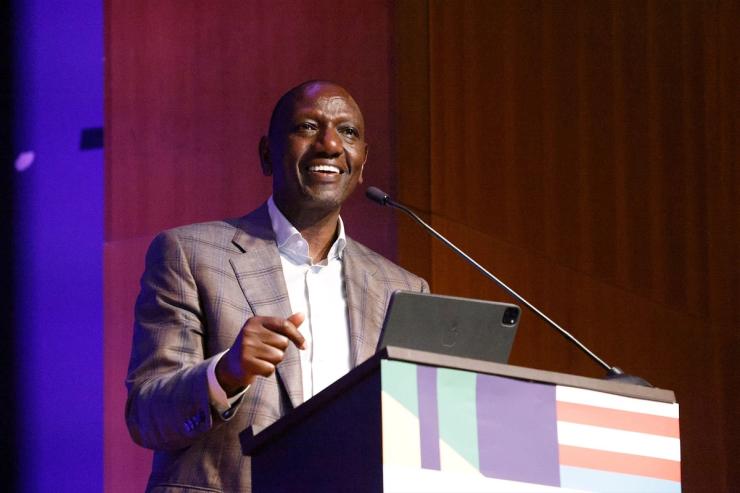The News
NAIROBI — Kenyan President William Ruto will begin a historic state visit to the US on May 23, the first by an African leader since Ghana’s John Kufuor in 2008. It will be the most significant display yet of Ruto’s emergence as a darling of the West and a leading voice for Africa.
Since his election as president in 2022, Ruto has built up his international profile through his advocacy on climate issues and calls for the reform of global financial institutions. He hosted the inaugural Africa Climate Summit last year, and has made numerous high-profile trips, including a visit to China in October last year.
Back home, however, Ruto’s US state visit has been overshadowed by widespread discontent over proposed tax hikes and the cost of living, as well as alleged government corruption and the government’s response to recent floods which killed over 160 people.
“Ruto has largely struggled to deliver on his promises of a radical economic transformation benefiting poor Kenyans,” Nairobi-based economist Anderson Njuki told Semafor Africa, referencing Ruto’s 2022 “Hustler” campaign, which was premised on empowering the poor and small business owners.
Cameron Hudson, a senior analyst at the Washington-based Center for Strategic and International Studies, said it was crucial for Ruto to deliver tangible benefits for the average Kenyan for his visit to be considered a success.
“Ruto has spent a lot of time on the world stage, but unless benefits of all that travel begin to accrue to people other than Ruto himself he is likely to face mounting discontent,” he told Semafor Africa.
In this article:
Know More
Ruto’s latest tax hike proposals dominate conversations in Kenya ahead of his US visit, including on local media outlets and online. The proposals include the removal of VAT exemptions on bread, tax hikes on mobile money transfers, and a new annual tax on the value of motor vehicles.
Ruto has repeatedly emphasized his willingness to make unpopular decisions as part of his plan to raise Kenya’s tax revenues and ease the country’s debt burden. Speaking to students from Harvard Business School in Nairobi on Wednesday, he said he planned to increase the country’s tax-to-GDP ratio from 14% to 22% by the end of his current term in 2027.
“It’s going to be difficult, I have a lot of explaining to do, people will complain but I know they will appreciate. We have to begin to live within our means,” he said.
Martin’s view
The Kenyan president has undeniably positioned himself as a leading African voice on the most important global issues of the day. His administration, however, has struggled to live up to the high expectations it set for Kenyans when he was elected two years ago.
Unemployment and the cost of living remain high. Tax hikes and allegations of government corruption have further dented his administration’s image. Public protests over the cost of living last year brought some of these frustrations to the fore.
Several Kenyans on the streets of Nairobi who spoke to Semafor Africa were not even aware of his upcoming state visit, with matters such as jobs and the cost of living of more concern to most. “He has disappointed the hustlers who elected him,” said cab driver Ian Macharia.
Ruto, however, still has the opportunity to leverage his rising international profile to secure benefits for people back home —- particularly through major investments that can guarantee jobs and boost the economy. He has confirmed that trade and investment will be at the top of his agenda on the upcoming US state visit.
Room for Disagreement
Kenya plans to take advantage of the state visit to pitch more than $20.5 billion (2.6 trillion Kenyan shillings) in investment opportunities to American investors. Kenya’s exports to the US were valued at $679 million in 2022 up from $543 million in 2021, representing 25% growth.
“I think Kenya can potentially showcase that it pays to be America’s friend, in a region where the US has struggled to show that it bothers to care about its partners’ strategic interests. It would be a big win for both countries if trade relations between the two countries were to improve,” Georgetown University professor Ken Opalo told Semafor Africa. He credited the current US ambassador to Kenya, former HP CEO Meg Whitman, with helping drive improved commercial relations between the two countries.
“The U.S. needs more ambassadors and diplomats who know and care about more than just aid, humanitarian assistance, and preachy democracy promotion,” he said.


